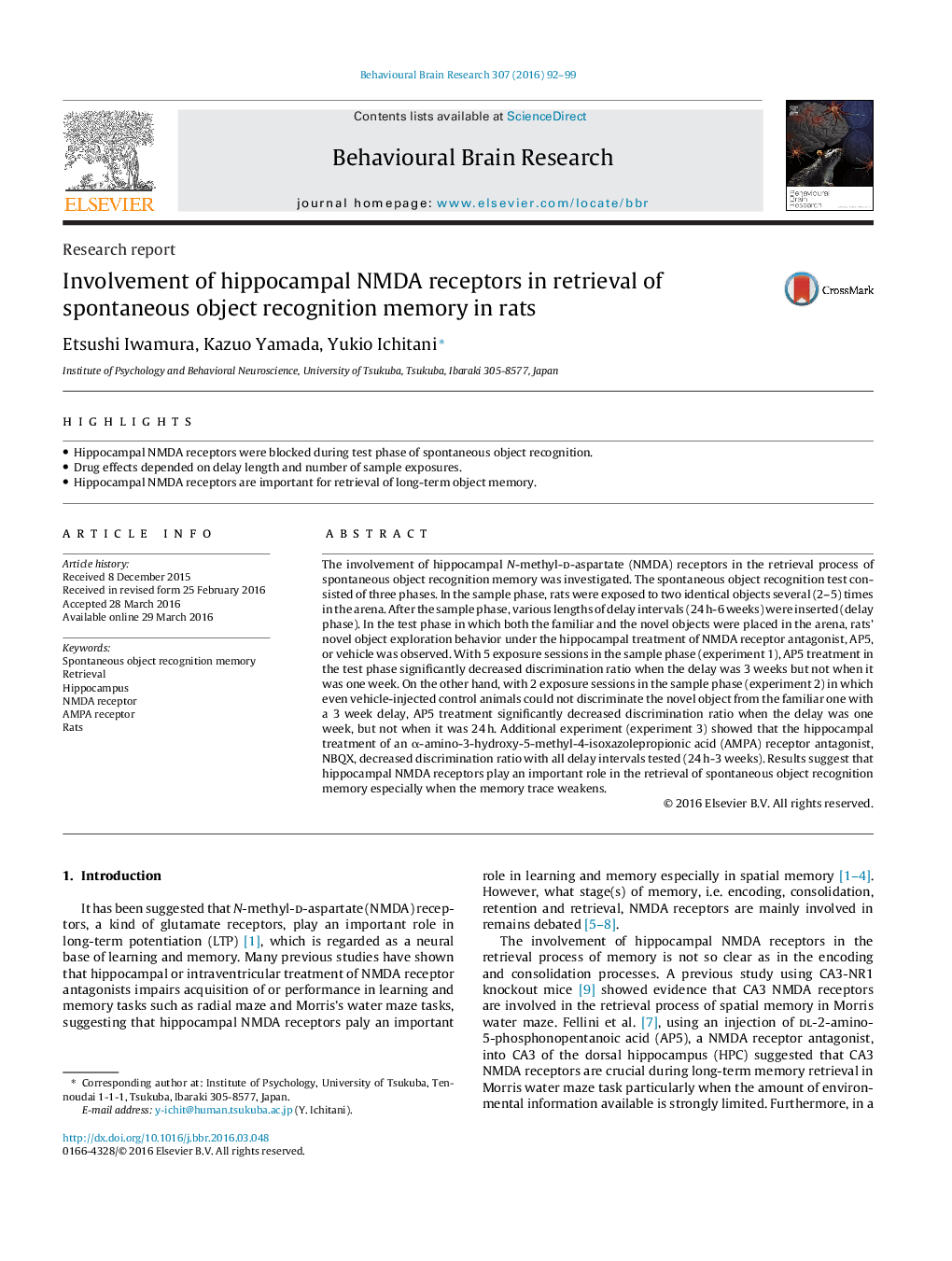| Article ID | Journal | Published Year | Pages | File Type |
|---|---|---|---|---|
| 4312258 | Behavioural Brain Research | 2016 | 8 Pages |
•Hippocampal NMDA receptors were blocked during test phase of spontaneous object recognition.•Drug effects depended on delay length and number of sample exposures.•Hippocampal NMDA receptors are important for retrieval of long-term object memory.
The involvement of hippocampal N-methyl-d-aspartate (NMDA) receptors in the retrieval process of spontaneous object recognition memory was investigated. The spontaneous object recognition test consisted of three phases. In the sample phase, rats were exposed to two identical objects several (2–5) times in the arena. After the sample phase, various lengths of delay intervals (24 h-6 weeks) were inserted (delay phase). In the test phase in which both the familiar and the novel objects were placed in the arena, rats’ novel object exploration behavior under the hippocampal treatment of NMDA receptor antagonist, AP5, or vehicle was observed. With 5 exposure sessions in the sample phase (experiment 1), AP5 treatment in the test phase significantly decreased discrimination ratio when the delay was 3 weeks but not when it was one week. On the other hand, with 2 exposure sessions in the sample phase (experiment 2) in which even vehicle-injected control animals could not discriminate the novel object from the familiar one with a 3 week delay, AP5 treatment significantly decreased discrimination ratio when the delay was one week, but not when it was 24 h. Additional experiment (experiment 3) showed that the hippocampal treatment of an α-amino-3-hydroxy-5-methyl-4-isoxazolepropionic acid (AMPA) receptor antagonist, NBQX, decreased discrimination ratio with all delay intervals tested (24 h-3 weeks). Results suggest that hippocampal NMDA receptors play an important role in the retrieval of spontaneous object recognition memory especially when the memory trace weakens.
